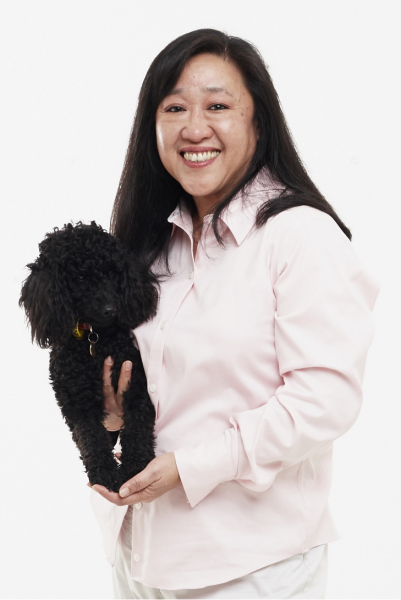FAQ
COMPANY
WHERE IS THE DELICATE CARE™ RANGE MADE?
Delicate Care™ is Australian owned and made. Our entire range is made at anAS5812 accredited facility in Western Australia
WHAT IS YOUR FOOD SAFETY ACCREDITATION?
Delicate Care™ is manufactured at an audited AS5812 and HACCP accredited facility, which is independently audited annually. HACCP is an internationally recognised level of food safety standard.
WHO OWNS DELICATE CARE™?


Delicate Care™ was established in 1998 by avid pet lovers Shirlyn Riemer and Peter Atsaros, two foodies who operate a successful food export business in Perth. With Delicate Care™ they are able to combine their passion for food and pets, and ensure cats and dogs can eat as healthily and safely as their owners.
WHERE CAN WE FIND YOUR PRODUCTS?
A current list of Veterinary Clinics that stock Delicate Care™ can be found by clicking here.
We are constantly expanding our list of stockists. If your vet doesn’t carry our range, please email us and we will contact the clinic and see if we can make Delicate Care™ more easily accessible for you.
WHO CREATES DELICATE CARE™’S FORMULATIONS?

The Delicate Care™ range is formulated by emeritus Professor Nick Costa, who was the Head of Biochemistry and Nutrition at one of Australia’s leading Veterinary Schools. Professor Costa is regarded as one of Australia’s most well respected Animal Nutritionists and has consulted for a number of multinational companies in the area of pet nutrition. All Delicate Care™ formulations incorporate the latest nutritional science to address the dietary needs of your beloved cat or dog.
WHY IS DELICATE CARE™ ONLY AVAILABLE AT VETS?
We believe that veterinary care forms a big part of caring for our pets. By making Delicate Care™ only available at vets, we know you’ll always receive the best nutritional solution for your pet’s life stage or condition.
WHAT IS YOUR COMPANY’S PHILOSOPHY?
Your pet’s health is our most important concern. Like you, we are pet lovers; we understand the joy of pet ownership and the unconditional love they give us. The aim of Natural Balance (makers of Delicate Care™) is to enhance the relationship you have with your pet by helping him or her live a long, healthy and active life.
WHAT IS YOUR POLICY ON ANIMAL TESTING?
We are totally against invasive animal testing. We do not keep kennels, catteries or laboratories for animal testing or product development.
Whenever a new recipe is developed, we enlist the assistance of a trusted group of breeders and Veterinarians who can complete the assessments for us based on their expertise and knowledge of each animal.
PRODUCTS
WHAT IS YOUR COMPLETE PRODUCT RANGE?
Delicate Care™ Adult Dog
Delicate Care™ Weight Management
Delicate Care™ Dental Diet for Dogs
Delicate Care™ Skin or Stomach for Dogs
Delicate Care™ Mobility Support for Dogs
Delicate Care™ Dental Diet for Cats
Delicate Care™ Skin or Stomach for Cats
Delicate Care™ Hypoallergenic Dental Treats for Dogs
WHY DO I SEE A VARIATION IN KIBBLE SIZE AND COLOUR?
WHAT DOES “NATURAL” MEAN?
HOW DO YOU PRESERVE YOUR FOOD IF YOU ARE ALL NATURAL?
The entire Delicate Care™ range is naturally and carefully preserved with natural antioxidants which contain mixed tocopherols (Vitamin E) and rosemary extract.
In order to keep our products fresh and stable, we also utilise state of the art plastic films when we pack our products. These packaging materials ensure that no light, water vapour or oxygen comes into contact with our products once they are sealed in the bags.
WHAT CAN I EXPECT TO SEE IN MY PET WHEN I FEED DELICATE CARE™?
As Delicate Care™ is highly digestible, you will immediately notice a reduction in stool size and odour.
You will appreciate the easy cleaning resulting from smaller, firmer stools. As your pet’s coat naturally regenerates, you will also notice the gloss that comes with the new coat.
INGREDIENTS
MEAT IS NOT YOUR NUMBER ONE INGREDIENT – WHY?
When fresh meat or offal is used, this form of protein already contains about 80% moisture. More water is added to the “fresh meat” to make a paste or slurry prior to the meat entering the manufacturing process. It is the presence of the water that makes this raw material heavy, thus enabling companies to claim that meat is their number one ingredient. However, as water evaporates in the oven the end proteins left in the dry matter is quite low.
If you read the ingredient listing you will find that formulations with meat as their number one ingredient need to be supplemented with additional protein sources (like meat meal, or vegetable protein sources) in order to meet the target protein content of the food.
DO ANY OF YOUR RAW MATERIALS ORIGINATE FROM CHINA?
WHERE DO YOU SOURCE YOUR INGREDIENTS?
Where a particular ingredient is not available from Australian sources due to availability or seasonality, we have to sometimes reluctantly source from overseas.
IS IT TRUE THAT HIGHER PROTEIN = BETTER VALUE FOR MONEY?
No. Instead of focusing on the level or percentage of protein, we choose our protein ingredients based on their quality, digestibility and mix of essential amino acids, with the aim of delivering the best mix of nutrients to your pet. Our levels of protein are carefully structured so that this meets your pet’s requirement for optimum growth and maintenance. All nutrients like protein must be balanced to energy in order to deliver the best nutrition for your pet..
WHAT ARE DIGESTS?
WHAT IS TALLOW?
WHAT ARE ESSENTIAL AND NON-ESSENTIAL AMINO ACIDS? IF IT IS NOT ESSENTIAL, WHY IS IT IN THE FOOD?
YOU HAVE OMEGA-3 AND OMEGA-6, BUT NOT OMEGA-9. WHY?
Our Omega Magic™ oil blend is a potent blend of Omegas 3 and 6, delivered in the optimum proportion that produces a healthy skin and shiny coat in your pet.
ARE GRAINS REALLY BAD FOR OUR PETS?
Cats have a lower tolerance for carbohydrates and quality cat foods like Delicate Care™ Skin or Stomach for cats deliver a low carbohydrate load of 20gms or less per day if cats are fed according to the recommended feeding guides.
DO YOU ADD SALT IN YOUR FORMULATION?
WHAT IS EPA AND DHA?
DHA is critical for neural development especially in young animals. DHA is also important in maintaining neural and cognitive function in older animals.
NUTRITION
WHEN DO I CHANGE FROM PUPPY TO ADULT?
DO YOU HAVE A LARGE BREED PUPPY FOOD?
Delicate Care™ Puppy
Delicate Care™ Skin or Stomach for Dogs
Delicate Care™ Mobility
Delicate Care™ Dental
All the above formulations are carefully designed with the large breed puppy in mind as these breeds have the most stringent requirements when it comes to nutritional balance. Our Puppy, Skin or Stomach, Mobility and Dental formulas for dogs are suitable to be fed to all breeds including large breed puppies. The protein, calcium and phosphorous levels fall within the safety limits as recommended by AAFCO and are designed to meet the nutrient requirements of all breeds of puppies with a scientifically supported safety margin to deliver optimal nutrition as recommended by expert nutritionists.
WHAT IS ENERGY?
IS DELICATE CARE™ SAFE TO FEED TO PETS WITH ALLERGIES OR INTOLERANCES?
It is important to first determine what allergies your pet has and whether or not the allergy or intolerance is in relation to food. Sometimes allergies can be brought about by environmental factors such as grass seeds, fleas or even mosquito bites. We highly recommend you involve your veterinarian in diagnosing the basis of your pet’s allergies to determine if food is the cause.
Delicate Care™ formulas are hypoallergenic and do not contain the most common food allergens such as chicken, beef or wheat. The Delicate Care™ Skin or Stomach formulas for dogs and cats utilise novel ingredients such as kangaroo, duck and sorghum and may be suitable as an elimination diet.
The Delicate Care™ Mobility formula utilises the same base as the Skin or Stomach formula with the added benefit of supplements to target mobility issues. Your veterinarian will be able to provide valuable insight, support and evaluation on which Delicate Care™ recipe is best suited to your pet.
MY DOG NEEDS TO LOSE WEIGHT. WHICH FORMULA IS BEST FOR MY PET?
Overweight dogs risk many problems including diabetes, pancreatitis and painful osteoarthritis.
Losing weight is not easy, however even small weight losses (eg 3-5%) can ease the pain of osteoarthritis.
Controlling the amount of calories is important, and can be supported by feeding Delicate Care™ Weight Management (a lower energy density food) or Delicate Care™ Mobility Support. These two formulations contain L-carnitine which assists with the conversion of dietary fat into energy rather than being stored in the body as fat.
Please also be careful with the amount of “treats” or additional food given to your pet on top of Delicate Care as these supply extra calories.
Your veterinarian will be able to provide valuable insight, support and evaluation regarding a suitable weight reduction plan for your pet.
DO I NEED TO GIVE ADDITIONAL SUPPLEMENTS LIKE CALCIUM WHEN FEEDING DELICATE CARE?
All Delicate Care™ formulations are complete and balanced, containing all nutrients including calcium.
This is added at exactly the scientifically recommended amounts to ensure optimum nutrition without supplementation.
Prior to using extra supplements, we would highly recommend you seek advice from your Veterinarian.
IS IT SAFE FOR MY DOG TO EAT THE CAT’S FOOD AND VICE VERSA?
Should the dog get into the cat’s bowl or vice versa, there is no cause for alarm.
However, the nutritional needs for dogs and cats are different and all Delicate Care™ formulations are designed with these specific needs in mind.
In order to ensure that your dog or cat’s nutritional needs are being met over the long term, dogs should be fed dog formulas and cats should be fed cat formulas.
What does “All Life Stages” mean?
Delicate Care™ Skin or Stomach for Dogs, Delicate Care™ Mobility for Dogs, Delicate Care™ Dog Dental Diet and Delicate Care™ Skin or Stomach for cats are suitable for “All Life Stages”.
WHAT IS AAFCO?
AAFCO stands for Association of American Feed Control Officials. AAFCO is the internationally accepted official body for recommending nutrient requirements for pets. AAFCO relies on a panel of nutrition experts to decide upon the nutritional recommendations for dogs and cats.
Each year AAFCO publishes tables of these nutrient requirements for Growth & Reproduction (i.e. puppies, kittens and reproducing females) and Maintenance (for adult dogs and cats). All Delicate Care™ formulations meet and safely exceed all AAFCO nutrient specifications.
HOW ABOUT GRAIN FREE DOG FOOD?
The carbohydrate in grains, just like the carbohydrate present in grain free formulas, are digested by pets and used for energy.
Whilst some pet owners may be of the opinion that their pets have difficulty in digesting grains, scientific research shows that modern day dogs have evolved and have the genes to digest starch rather efficiently. Modern day dogs have developed copies of the gene for producing amylase, an enzyme that assists in the breakdown of starch in the gut. Most grain free dog foods have replaced traditional grains such as wheat and corn with potatoes or legumes, all of which are not starch or carbohydrate free.
DOES THE HEAT OF COOKING DAMAGE THE NUTRIENTS IN YOUR FOOD?
Delicate Care™ is produced though steam and pressure cooking. This is an important step to sterilise the final products and make them safe for your pets.
The heat treatment immobilises microbacteria and pathogens like e.coli and salmonella so that the final products are shelf stable without the need for refrigeration.
Although cooking may affect some of the nutrients in the food, we compensate for this by including a scientifically based “safety margin” for nutrients in our formulations in order to deliver optimal nutrition to your pets.
IS DELICATE CARE™ SKIN OR STOMACH FOR CATS SAFE TO GIVE TO CATS THAT HAVE A HISTORY OF FLUTD?
Delicate Care™ Skin or Stomach for Cats may be suitable for cats with a history of struvite accumulation in their urethra and bladder.
The low magnesium content may decrease the propensity for struvite crystals to form and the Ammonium Chloride acidifies the urine which may assist in reducing struvite crystals that might have formed in the urethra.
We recommend that you consult with your veterinarian, to structure a long term management plan for your pet.
WHY IS IT IMPORTANT TO CONTROL THE CALCIUM AND PHOSPHOROUS LEVELS?
When calcium and phosphorous levels are too high, this will affect the growth of puppies, in particular large breed puppies where it is critical to keep these two nutrients at the right levels. Too much calcium and phosphorous will have a negative effect on bone development in a growing puppy. Additionally, too much calcium will affect your pet’s ability to absorb the mineral zinc, which is extremely important in maintaining skin and coat condition.
WHAT IS THE DIFFERENCE BETWEEN PREBIOTICS AND PROBIOTICS? WHAT DOES DELICATE CARE CONTAIN?
Although the live bacteria can be beneficial, heat (such as the process of cooking) and stomach acids kill these live cultures.
Prebiotics, on the other hand, are an indigestible fibre being both heat and acid stable. Prebiotics act as a food for the good bacteria already present in your pet’s gut.
As these good bacteria are nourished, this improves the ratio of good vs bad bacteria in the gut and can be beneficial as a first line of defence against diseases.
Delicate Care™ formulas all contain Prebiotics in the form of Fructo-Oligosaccharides (FOS) derived from inulin, as well as Mannan-Oligosaccharides (MOS) from yeast.
FEEDING
HOW MANY TIMES A DAY SHOULD I FEED MY DOG/CAT?
A puppy’s daily feed can be split into 3 equal portions and given 3 times per day.
Adult cats can either be fed small amounts through the day, or fed once a day and letting them choose how often they eat.
Dogs that tend to overeat, put on weight or don’t like to exercise should be restricted to two or three small meals per day.
Deep chested breeds such as Basset Hounds, Rottweilers etc. should be fed several small meals per day, especially in hot weather, to reduce the risks of bloating.
HOW DO I TRANSITION FROM MY CURRENT FOOD TO DELICATE CARE™?
WHY IS WATER SO IMPORTANT?
MY PET HAS SOFT STOOL AFTER EATING DELICATE CARE™. WHAT’S WRONG?
MY DOG JUST VOMITED AFTER EATING DELICATE CARE™. WHAT’S WRONG?
The most common reason for your dog vomiting is that your dog has eaten too much food, too quickly.
If restricting the amount of food does not resolve the vomiting or if vomiting persists for a few days, please check with your veterinarian.
CAN I GIVE TREATS TO MY PET WHILE ON DELICATE CARE™?
Many pet parents offer treats to their pets as a reward. It is important to look at the ingredients and nutritional panel of the treat and take into account your pet’s condition, weight and special dietary requirements. Treats are not a complete and balanced food and should not be given as a sole or major source of sustenance for your pet.
CAN DELICATE CARE™ BE USED AS A LONG TERM DIET?
All Delicate Care™ formulations are complete and balanced, so they can be used for long term nutritional sustenance.
PACKAGING
WHY DO THE BAGS LOOK VACUUM PACKED?
Each bag of Delicate Care™ is hand packed at the factory. Our packing crew ensures that each bag is “de-aired” to remove as much oxygen from the bag prior to sealing.
You will notice that there is a small oxygen absorber pad/sachet inside each Delicate Care™ bag.
This sachet is included in the sealed bag to absorb whatever oxygen is left in the bag to keep the product fresh.
Oxygen is the main cause of oxidation and rancidity. As this little pad absorbs oxygen inside the package, the bag can look vacuum packed.
MY DOG JUST SWALLOWED THE OXYGEN ABSORBER PADS!
While this is not ideal, there is no need to panic as the oxygen pad is not toxic to your pet.
The sachet contains iron, carbon, salt and calcium carbonate that are all non-toxic when ingested by your pet. The only danger in your dog swallowing a sachet is the potential of this being a choking hazard.
HOW DOES THE PACKAGING KEEP THE PRODUCTS FRESH?
All Delicate Care™ products are naturally preserved without the use of any artificial preservatives.
The main culprits in spoiling dry pet food are oxygen, humidity and light. Our aim is to preserve the freshness of our products through the use of the most up to date technology in packaging.
All our plastic bags are multi-layered plastic laminates, with a metallized layer in the middle.This metallized layer delivers the lowest oxygen, light and water vapour transfer rates, which serves to protect our pet food.
You will also notice that in each bag of Delicate Care™, there is an oxygen absorber sachet. Once the bag is sealed, the oxygen absorber pad will absorb all the remaining oxygen in the bag, so much so that sometimes our bags look vacuum packed.
WHAT IS THE BEST WAY TO STORE PRODUCTS?
IS IT SAFE TO USE THE PRODUCT AFTER THE USE BY DATE?
The use by dates printed on our products are conservative to ensure freshness. If the product is stored properly prior to opening, the products may be used for up to 6 months past the printed use by date. We would recommend that you smell the product and check for signs/smells of rancidity and discard products that smell rancid.